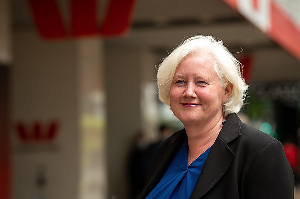
While Southern Cross is within its rights to change the benefits it offers, advisers are complaining about the lack of communication and the shock their clients are experiencing at finding they don't have the cover they thought they did, just at the point when they actually need to cover.
“Whilst they have the right in the policy to change the wording, simply removing this significant benefit without advice is, I suggest, uneithical and could cause many members to be seriously affected,” says Graeme Lindsay, who provides analysis to life and health insurance agents through his firm Strategy Financial Services.
Jon-Paul Hale of Willowgrove Consulting says it is “arrogant of Southern Cross to suggest we have and know all about all the conditions” and that agents should have been aware of the changes.
“This means that their existing policyholders won't get access to treatments they expect and largely have no avenue for retribution with Southern Cross either,” Hale says.
The client who brought the change to his attention had used the benefit extensively in the past for several hospitalisations to treat a drug-resistant e-coli infection in an organ, but hadn't needed it since early 2020 when the affected organ was removed.
“Recently, they have had a change in circumstances and budget concern, so they were looking at their options and noted this benefit wasn't there and called me,” Hale says.
Both Hale and Lindsay provided Good Returns with extensive documentation of material Southern Cross sent policyholders both before and after the changes that appear to show the insurer made those changes in a stealthy manner.
No mention of dropped cover
Advice Southern Cross sent to members in November 2020 after the benefit had been dropped said:
“We're enhancing some benefits and making changes to provide more options,” the notification said.
“So that plans are easier to use, understand and compare, we've made some changes to align and simplify them,” it said.
“There are new cancer cover options for some plans, giving you more choice including access to cancer drugs not subsidised by Pharmac. Cover has been added for the latest proven new health technologies.”
The notification went on detail a number of changes, including a new benefit paying $100 a year for an annual health check, but nowhere does it say the non-surgical hospitalisation benefit had been dropped.
When Lindsay queried Southern Cross about this, the response from the company said: The Wellbeing policy wordings do not have a specific benefit for non-surgical hospitalisation cover as cover for appropriate non-surgical/medical treatments is provided across many other the other benefits within the plan.”
But Lindsay says this represents a significant reduction in cover for existing policyholders who have suffered a condition after taking out their policy and are now unable to replace the cover with another insurer.
This behaviour “smacks of very dodgy practices” and represents “a blatant serious disretgard for the impact on members,” Lindsay says.
Good Returns has asked Southern Cross about this situation and is awaiting its response.



